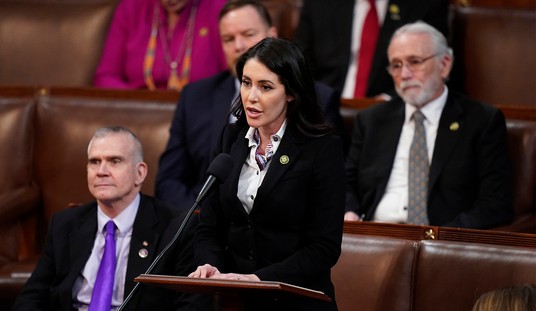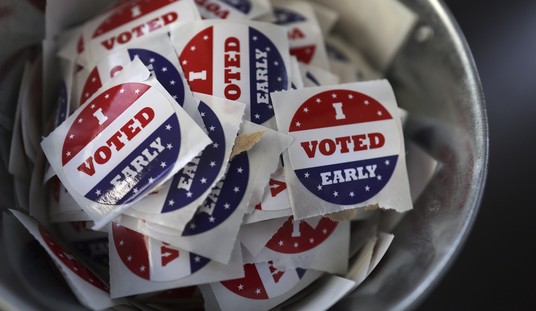
This is one of the most difficult posts I have ever had to write. I had naively hoped that this election cycle, I would be treated to a substantive contest between a spate of highly accomplished two-term conservative governors, and Senators of great rhetorical skill acting as the ideological conscience of the bunch.
As the primary wore on through the summer of 2015, it became clear that the GOP electorate was not interested in governors of accomplishment, but I still had hope for a final contest between two of my favorite Senators: Ted Cruz and Marco Rubio. I hoped to hear a rousing and fair debate between the two leading into Super Tuesday, where I would be able to make a decision based on who would be the better President, and who would make the better general election opponent against Hillary Clinton.
Sadly, 35% of our party has decided to abdicate their responsibility as adults to take their civic voting duty seriously, and so the poisonous threat of Trump has completely altered my own personal voting calculus.
No one can be a good President unless they can win a Presidential election. That means that the ability to beat Hillary Clinton is a necessary pre-requisite to the job. It also unfortunately means that the ability to beat Donald Trump is a necessary pre-requisite to the job.
I’ve been on the record for months saying that Ted Cruz would be a better President than Marco Rubio. I still believe that. Ted Cruz is one of us, and there’s no doubt about it. Cruz would be far more effective bringing the Federal leviathan under control and shaking up Washington, DC than Rubio (or Trump, for that matter, ever would). And I also firmly believe that Ted Cruz would beat Hillary Clinton in the general election.
The problem is, I no longer believe that Ted Cruz can beat Donald Trump. Cruz likes to say that he is the only candidate who has beaten Donald Trump, and it’s true that the idiosyncrasies of the Iowa Caucus electorate handed him a narrow win over Trump in a small-delegate state. The problem is that he’ll never have a contest as favorable to his electoral strengths as Iowa again.
Dan McLaughlin performed an invaluable, numbers-driven deep dive yesterday that shows the mathematical problems Cruz has going forward. The tl;dr version of the post is that unless Cruz emerges from Super Tuesday with an actual delegate lead – which is an increasingly remote possibility given that he is headed in the wrong direction in the polls, relative to both Rubio and Trump – he is doomed.
Cruz has simply not succeeded in expanding his voting base beyond self-described “evangelical” and “very conservative” voters. He has lost every other category of voter to both Rubio and Trump in every contest so far. He was able to win Iowa because those two groups were so densely clustered in the Iowa electorate. He has some Super Tuesday states where they are also favorably clustered, but after March 5th, the terrain becomes brutal for Cruz.
Let me borrow heavily from the data from Dan’s post to illustrate this point. Here is how the candidates have done thus far with “non-evangelical Christian voters” in each contest:
IA: Trump 29, Rubio 26, Cruz 19, Kasich 4
NH: Trump 37, Kasich 18, Rubio 11, Cruz 8
SC: Trump 30, Rubio 22, Kasich 19, Cruz 13
NV: Trump 50, Rubio 24, Cruz 18, Kasich 5
Even in New Hampshire, where Rubio flopped, he still beat Cruz in this category.
Let’s look furthermore at “somewhat conservative voters”:
IA: Rubio 29, Trump 24, Cruz 19, Kasich 2
NH: Trump 36, Kasich 14, Rubio 12, Cruz 9
SC: Trump 35, Rubio 25, Cruz 17, Kasich 6
NV: Trump 50, Rubio 26, Cruz 16, Kasich 4
Again, clear preference for Rubio, even in New Hampshire at the nadir of his campaign.
Now let’s look at “moderate” voters:
IA: Trump 34, Rubio 28, Cruz 9, Kasich 7
NH: Trump 32, Kasich 28, Rubio 8, Cruz 4
SC: Trump 34, Rubio 23, Kasich 21, Cruz 7
NV: Trump 55, Rubio 27, Cruz 7, Kasich 6
Again, a huge preference for Rubio – in fact, those numbers for Cruz indicate a huge dislike and probably represent a group that would almost wholesale go for Trump if Rubio were not in the race.
And now, the one group where Cruz out performs Rubio, evangelicals:
IA: Cruz 33, Trump/Rubio 21, Kasich 1
NH: Trump 27, Cruz 23, Rubio 13, Kasich 11
SC: Trump 33, Cruz 27, Rubio 22, Kasich 5
NV: Trump 40, Cruz 26, Rubio 23, Kasich 2
One observation immediately jumps out at you from these results: Ted Cruz is simply not broadening his appeal beyond “evangelical” and “very conservative” voters over time. As other candidates have dropped out and the race has advanced, those voters have gone to other candidates, completely passing Cruz by. Meanwhile, his support among evangelical voters and “very conservative” voters has remained stagnant while both Rubio and Trump have elevated their standing.
Long story short: Ted Cruz cannot expand beyond his current base of “Evangelical” and “Very conservative” voters. He has tried, and failed. What’s equally important is that he has failed to increase his standing within those groups, and wrested any portion of them away from either Trump or Rubio. Rubio, meanwhile, has increased his standing with every group of Republican voters. He has dominated late deciders in every primary other than New Hampshire.
So let’s do some simple math. Even if we assume that Marco Rubio drops out the day after Super Tuesday, we would have to assume that his support would split in some fashion between Trump and Cruz. Even if you assume that Cruz would get almost all of the “non-evangelical Christians,” virtually all of the “evangelical Christians” and most of the “somewhat conservative” voters that are currently allocated to Rubio, you would have to assume that Trump would get the lion’s share of the “moderate” voters that are currently allocated to Rubio.
The end result is that Ted Cruz still loses a heads up matchup with Donald Trump anywhere that the electorate is not at least 60% evangelical and/or “very conservative.”
The problem for Cruz is that after Super Tuesday, the electorate gets significantly less evangelical, and less “very conservative.” To borrow again from Dan’s excellent post yesterday:

This is a chart that plainly illustrates that, if you started the primary on March 6th as a zero-zero tie between Ted Cruz and Donald Trump, Trump would likely win the election the rest of the way. Cruz simply must emerge with a delegate lead from Super Tuesday/March 5th, or he is toast.
And the evidence is mounting that Cruz has absolutely no shot at emerging from Super Tuesday with a delegate lead – in fact, the optimistic projections have him emerging at least 100 delegates behind Trump and the more realistic ones have him trailing by more than 200. If the Emerson poll yesterday that shows Cruz essentially in a three way tie with Trump and Rubio is accurate, then he’ll be in a bigger hole still. If he comes out of Super Tuesday behind by 200 delegates or more (which seems likely), then he will have to win the remaining delegates by roughly a 55-45% split.
That is, quite simply, something he cannot do, especially with a whole slew of winner-take-all states that he is likely to lose outright. His base of support, while loyal, is simply too narrow to succeed in the post-March 5th states.
That is not to say that Rubio would definitely beat Trump or that he does not have his own challenges to face. But the fact that he has shown a demonstrated ability to broaden his appeal such that he has a reasonable chance for success in non-Southern states means that he at least has a chance. Ted Cruz does not, at least that I can see.
I would love to have Ted Cruz as my President. But I can’t keep holding on to the dream that it will happen when math is staring me in the face saying that it can’t. Following that path is exactly what led us to McCain in 2008 and Romney in 2012, and Trump is a much greater menace than either.
The choice at this point is either Rubio or Trump, realistically. And that’s the easiest choice I’ve ever had to make – and not just because Rubio is the “not Trump” option (although I would admittedly crawl over broken glass to vote against Trump). Rubio has a lot to commend him to conservative voters, which I have covered at length here and won’t rehash now.
I know some Cruz supporters will be resistant to support Rubio because of the rough and tumble of the political campaign and because of hurt feelings incurred during the increasingly personal war of words between Cruz and Rubio. Politics, as they say, ain’t beanbag and both Cruz and Rubio have been aggressively trying to win at each other’s expense.
But even if you object to Rubio’s tactics, they pale in comparison to the neverending cavalcade of flatly dishonest and juvenile attacks that Trump has leveled at Cruz, and the alternative to Rubio right now is Trump. Conservatives don’t have to like it, but they do have to accept it, if they don’t want Trump to be the nominee in 2016.
On Super Tuesday, I will step into the voting both and cast my vote for Marco Rubio. I will do it without reservation, although I would have preferred Cruz from both an ideological and temperamental standpoint. I recognize that Rubio would still be the best and most conservative nominee I will have ever had the opportunity to vote for in the general, and I can’t really be sad about not getting Cruz when my second choice is a pretty darn good option.
But even if you’re not as sanguine about the situation as I am, I hope you’ll realize the truth: right now the realistic options for our nominee are Marco Rubio and Donald Trump.
I choose Marco Rubio and happily endorse him for President of the United States.













Join the conversation as a VIP Member